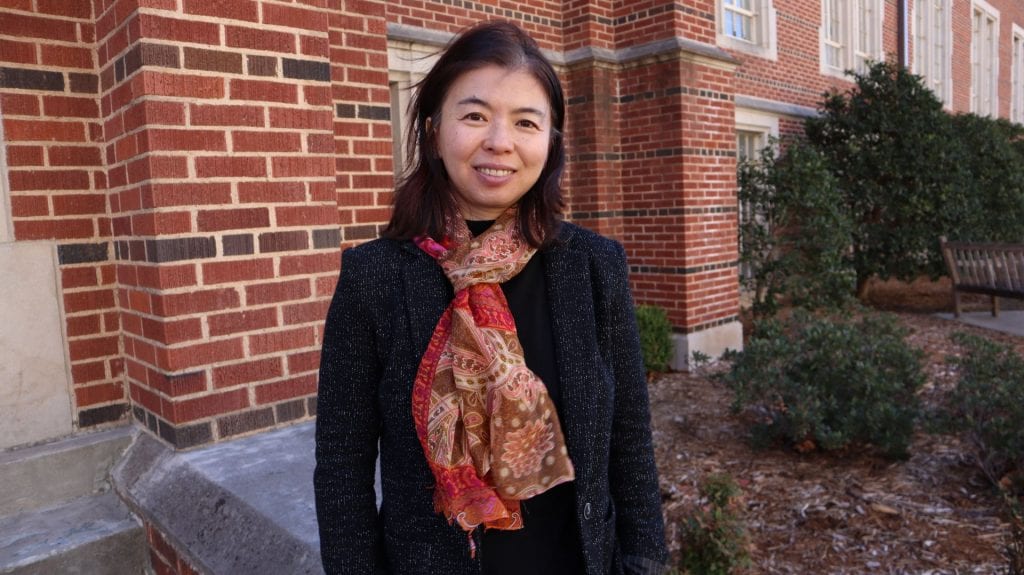Dr. Li Song, an associate professor at AME, received three awards for her current research projects. Two awards are from the Department of Energy, and the third award is from Battelle – Pacific Northwest National Laboratory.
Song is the lead PI for the development and validation of a home comfort system for total performance deficiency/fault detection and optimal control project, which received a DOE fund of $993,149. The research team will develop and validate a smart thermostat-integrated low-cost home energy management system, including a data connection framework; a computationally efficient, self-learning home thermal model; automatic fault detection and analysis algorithms; and home energy management information and controls based on in-situ measured efficiencies of heating and cooling equipment, the air distribution system, and the building envelope.
The second DOE fund is $551,566 for the performance demonstration of an occupancy sensor-enabled integrated solution for commercial buildings project. The research team will validate the performance and savings of three HVAC control (fan, cooling coil valve, outside air) algorithms integrated with occupancy sensing data to optimize ventilation delivery.
A $50,000 award was given to Song from Battelle – Pacific Northwest National Laboratory for her “Transactive-Control Based Connected Home Solution for Existing Residential Units and Communities” project.
This is a summary of Song’s research proposal sent to Battelle: To obtain the overall project aims, the development of machine learning techniques to calibrate the initial physical model that estimates and predicts energy use of a house and its response to control signals is extremely important. An effective home thermal model, that can predict the indoor air temperature dynamics under different weather, HVAC output and internal gains from appliances and occupants, is essential for the development.
BEEL initiated the development of a self-learning home thermal model two years ago. The BEEL home model, currently limited for a house with an A/C and gas-furnace heater, can automatically identify the model parameters with minimum data needed and precisely predict the space temperature and home HVAC energy uses for a house. To enhance the connectivity and compatibility of the platform proposed by PNNL, BEEL is committed to expand the home thermal model for a heat pump system and test enhanced home model using two houses located in Oklahoma through the partnership with OG&E. The challenge of modeling the heat pump is that the heating output from a heat pump is no longer constant as-is for a gas furnace heater. A correlation of the heating output of a heat pump and outdoor air temperature needs to be formulated and similarly, a correlation between cooling output of a heat pump and weather might be needed for cooling season as well.
Congratulations Dr. Song!
Additional News About Dr. Song’s Research:
Dr. Song’s Research is Promoted in the Press
Dr. Song Receives 2018 ASHRAE Technical Paper Award
